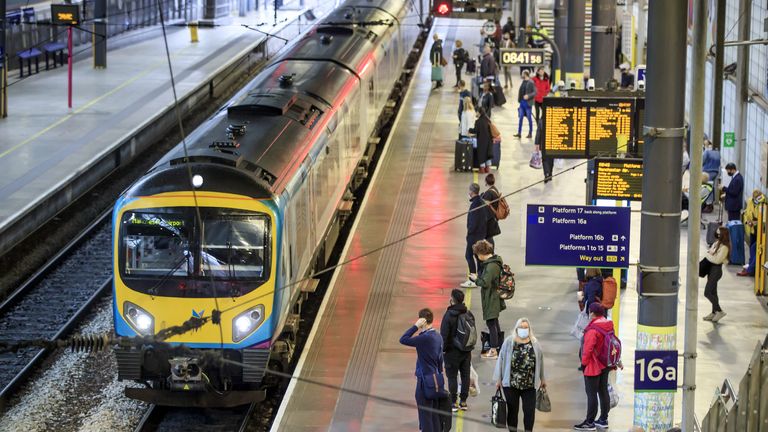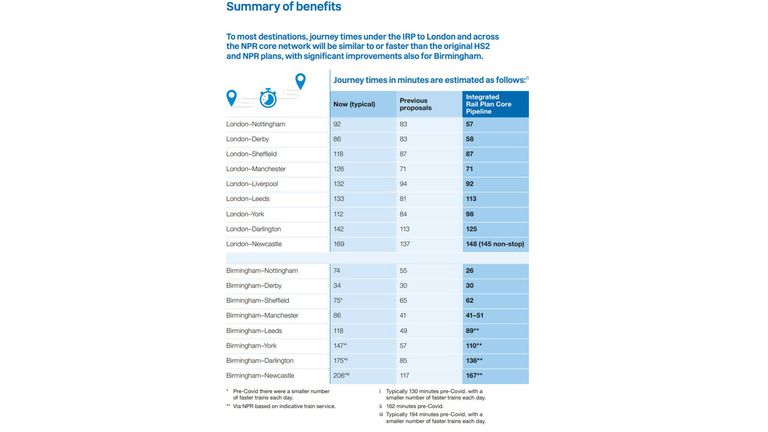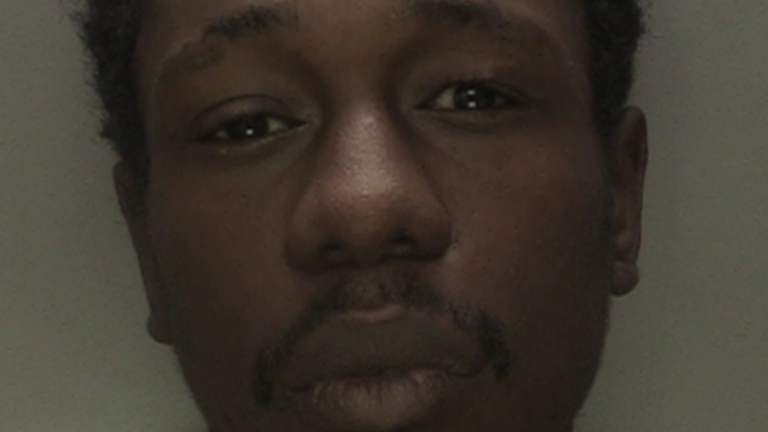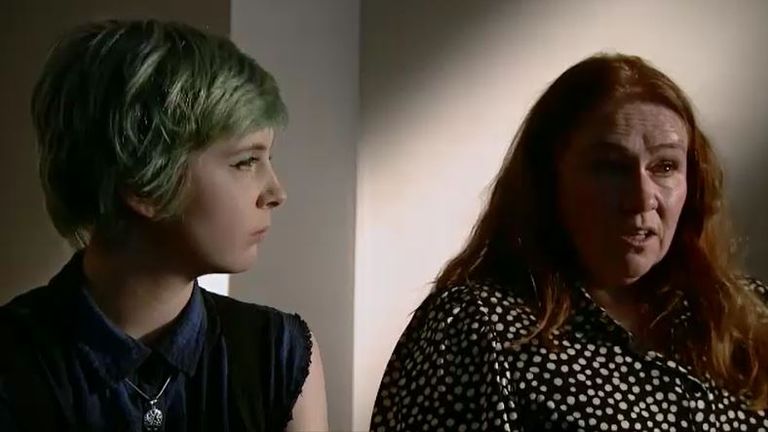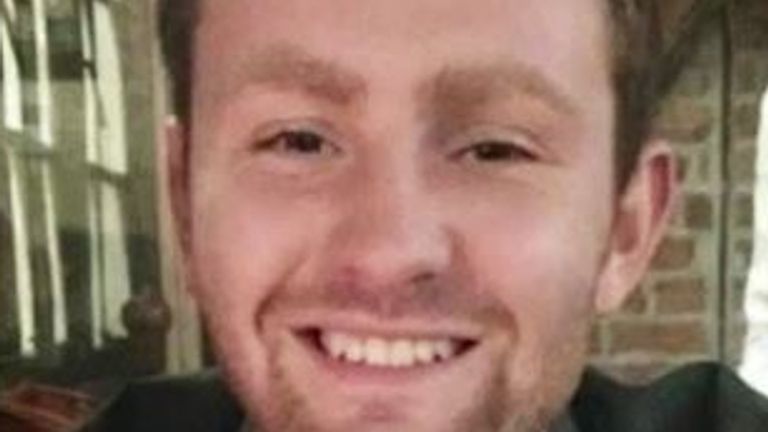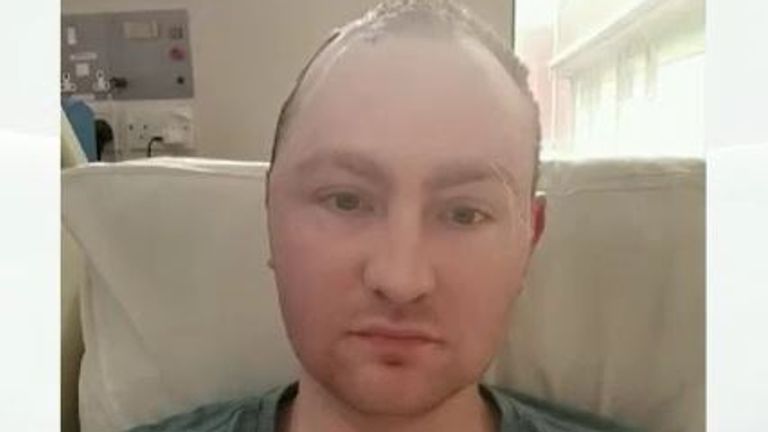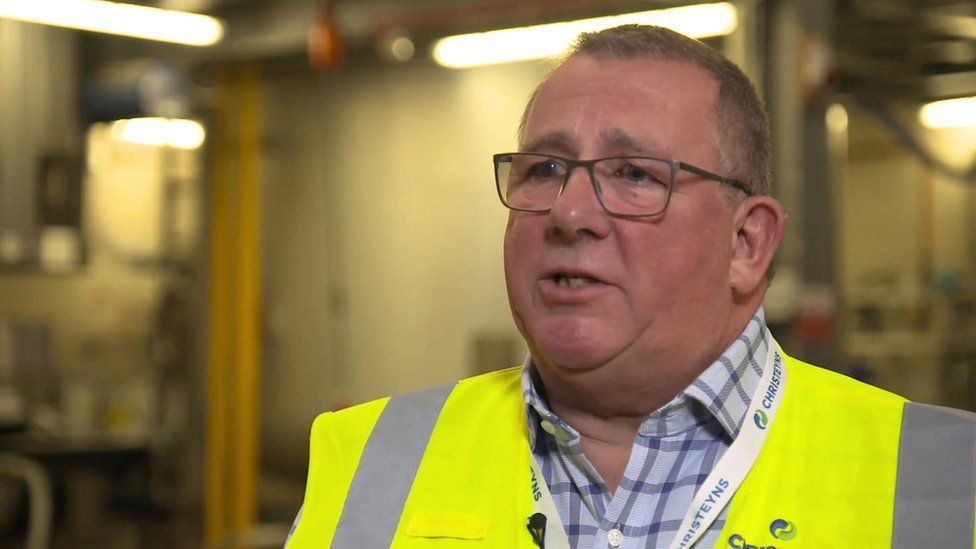This video can not be played
To play this video you need to enable JavaScript in your browser.
A killer who launched a deadly stabbing spree in Birmingham has been sentenced to at least 21 years.
Jacob Billington, 23, died and seven others were hurt in five separate incidents carried out in 90 minutes across the city on 6 September 2020.
Zephaniah McLeod, 29, previously admitted manslaughter and four counts of attempted murder.
Judge Justice Pepperall said he would be detained at Ashworth hospital for "as long as necessary".
Afterwards, he said McLeod would see out the remainder of his term in prison.
The 29-year-old, of Nately Grove, Selly Oak, had been suffering from paranoid schizophrenia and was "well-known" to mental health services at the time of the apparently random attacks.
An ongoing NHS-led serious case review into various agencies' contact with McLeod prior to the stabbing was making it hard to get answers to outstanding questions, said Mr Billington's family.
This video can not be played
To play this video you need to enable JavaScript in your browser.
The 23-year-old from Crosby, in Merseyside, was enjoying a night out in Birmingham when he was stabbed.
His friend Michael Callaghan, 24, was left with life-changing injuries.
Birmingham Crown Court heard McLeod had caught a taxi home part-way through his attacks, to pick up another knife, before returning to the city centre.
Chosen at random
Mr Justice Pepperall said McLeod had gone on a "murderous rampage" during the 90 minutes and left behind an "appalling catalogue of offending of the utmost gravity".
"Your victims were variously enjoying a night out or returning home from work," the judge said.
"They gave you no offence and they were chosen at random. Wherever possible you aimed your knives at your victims' necks.
"I have no doubt whatsoever you are a very dangerous man and pose a significant risk to members of the public of serious harm."
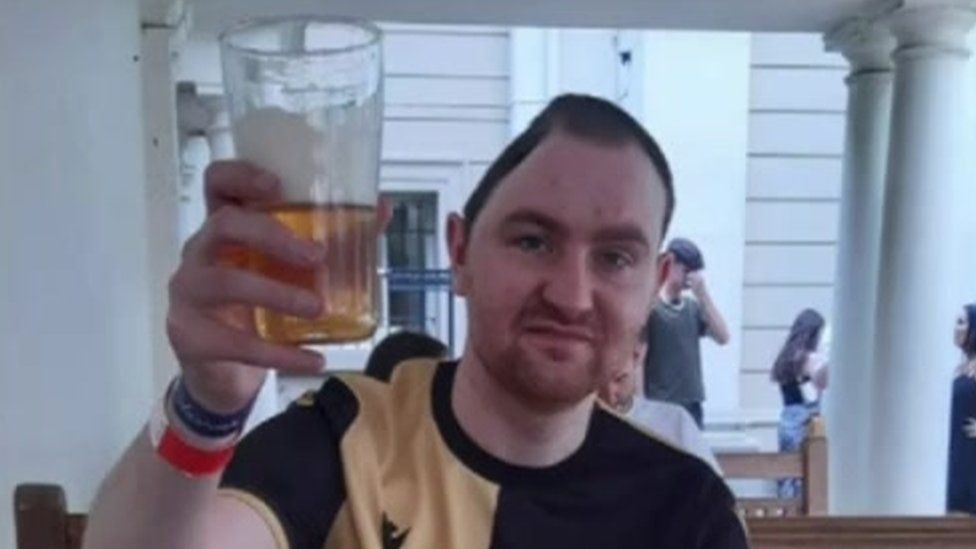
The court heard McLeod had refused a psychiatric appointment in the days before his fatal attacks.
'Unanswered questions'
Prior to that, he had little contact with health services after being released from prison in April 2020, despite a history of refusing to take his medication and hearing voices telling him to kill and stab people.
Jacob's mother Joanne Billington said there were still many "unanswered questions" about various state agencies' prior treatment and monitoring of McLeod, and believes "mistakes were made".
In an impact statement read to the court she said she hoped McLeod's care would be "properly looked into and that all involved remember my son bled to death in the street at the hands of someone well-known to many agencies".
Speaking after the sentencing, Jacob's father Keith Billington said while the family continued to grieve "we must ask the obvious question - why was McLeod - known to so many agencies - allowed to be out an about on 6 September unsupervised, unmedicated and not under licence?"
Mr Justice Pepperall said it was a "matter of considerable concern" McLeod was "simply lost in the system for some weeks".
He said he had been left "without any appropriate follow up by mental health services" following his release from prison at the height of the Covid-19 pandemic.

Analysis - BBC News Correspondent, Phil Mackie
During the sentencing hearing Abbie Billington, Jacob's sister, read out a statement in which she asked "how was a man so unstable and in a mental health crisis able to walk the streets unsupervised?"
A multi-agency review will attempt to answer that question. It is unlikely to be published until early next year.
This wasn't the first time that someone who was seriously mentally ill had killed someone with a knife in the centre of Birmingham.
In May 2001 Rosie Ross was fatally stabbed by Inderjit Kainth, who was suffering from paranoid schizophrenia.
In his case, he hadn't been known to the authorities beforehand. That wasn't the case when Glaister Butler killed detective constable Michael Swindells in 2004, nor when Philip Simelane killed Christina Adkins in 2013.
The authorities admitted errors and promised to learn lessons then. What the Billington family wants to know is whether the same mistakes have been made again and if lessons will be learned in the future.

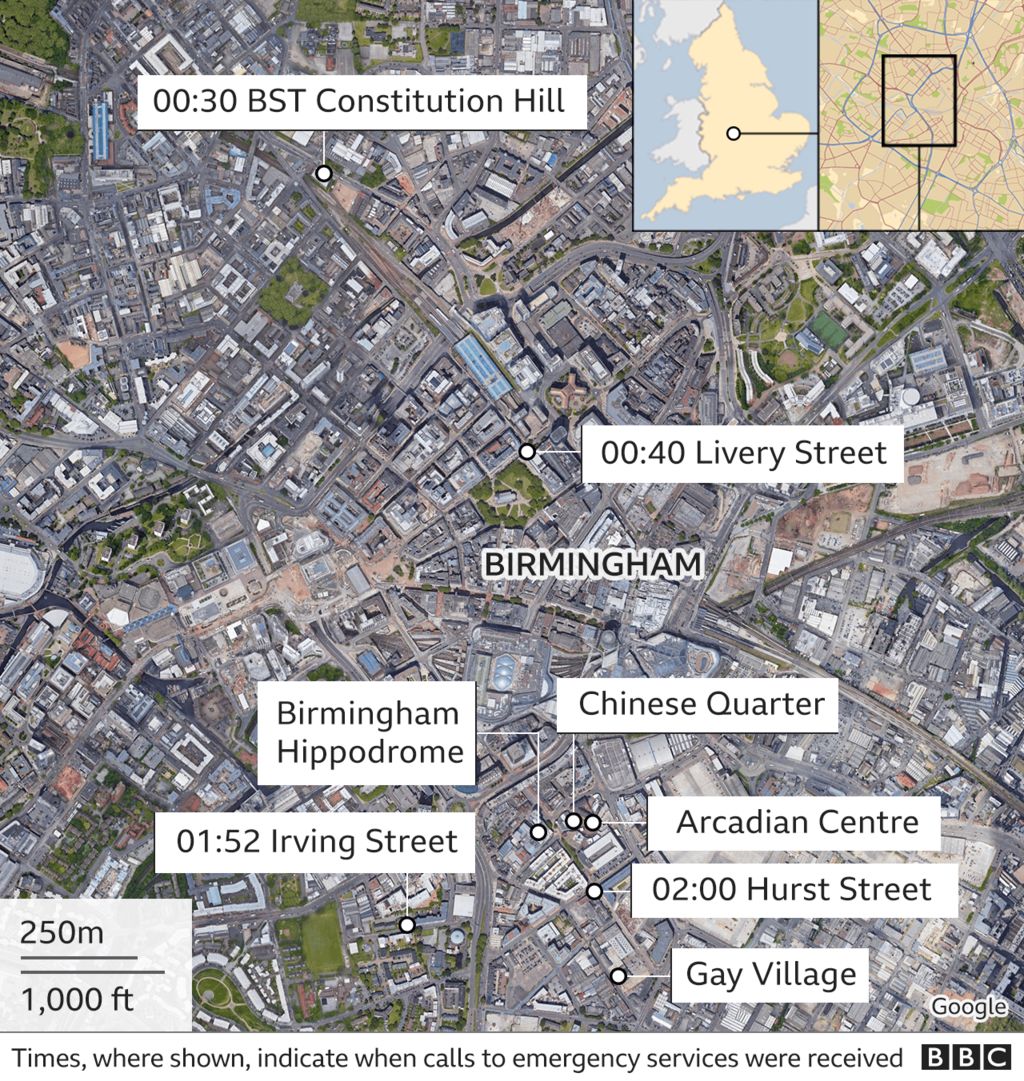
Police said witnesses' varying descriptions of McLeod and the random nature of the attacks made it difficult to link them on the night.
McLeod attacked his first victim just after 00:30 BST in Constitution Hill, where a 33-year-old man sustained a neck wound.
He then went on to carry out attacks in Livery Street, and Barwick Street before dumping his weapon down a drain and calling at a pizza restaurant to ask for a new knife.
Staff, unaware of what had happened, called him a taxi and he travelled home to Selly Oak, before returning rearmed to continue his attacks, including the fatal injury of Jacob Billington on Irving Street at about 01:50.
Supt Jim Munro said stabbings in Birmingham were "not uncommon" and information from witnesses, coupled with the different locations made it difficult to link the incidents.
He said officers "painstakingly viewed many, many hours of CCTV", while the pizza restaurant where McLeod had called a taxi helped direct officers to the Selly Oak area, where they later arrested McLeod.
West Midlands Police was forced to defend its response to the attacks, but a review found it acted "appropriately and professionally".

Follow BBC West Midlands on Facebook, Twitter and Instagram. Send your story ideas to: newsonline.westmidlands@bbc.co.uk
Related Internet Links
https://news.google.com/__i/rss/rd/articles/CBMiOWh0dHBzOi8vd3d3LmJiYy5jby51ay9uZXdzL3VrLWVuZ2xhbmQtYmlybWluZ2hhbS01OTI5MjA5MNIBPWh0dHBzOi8vd3d3LmJiYy5jby51ay9uZXdzL3VrLWVuZ2xhbmQtYmlybWluZ2hhbS01OTI5MjA5MC5hbXA?oc=5
2021-11-18 15:12:07Z
1176659823





